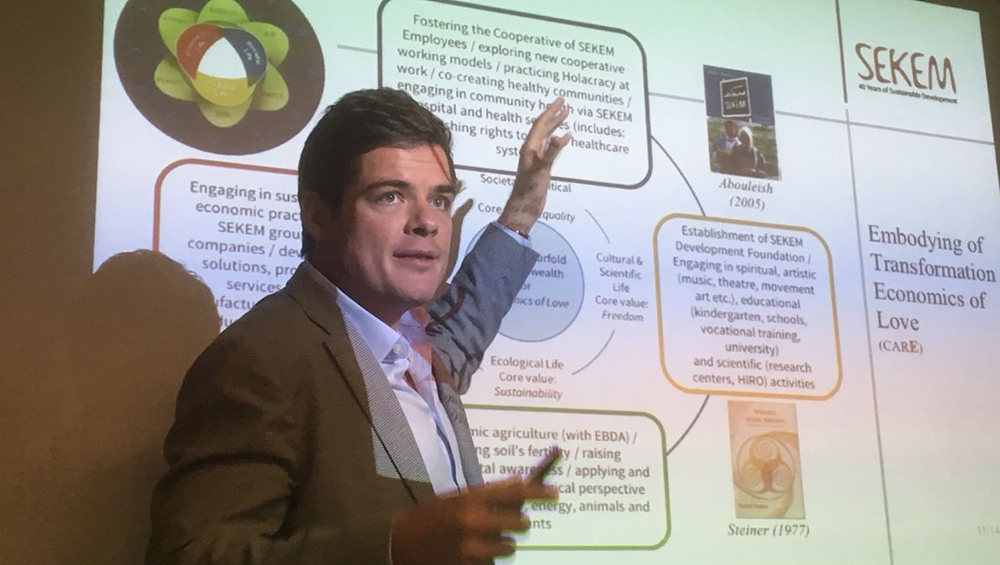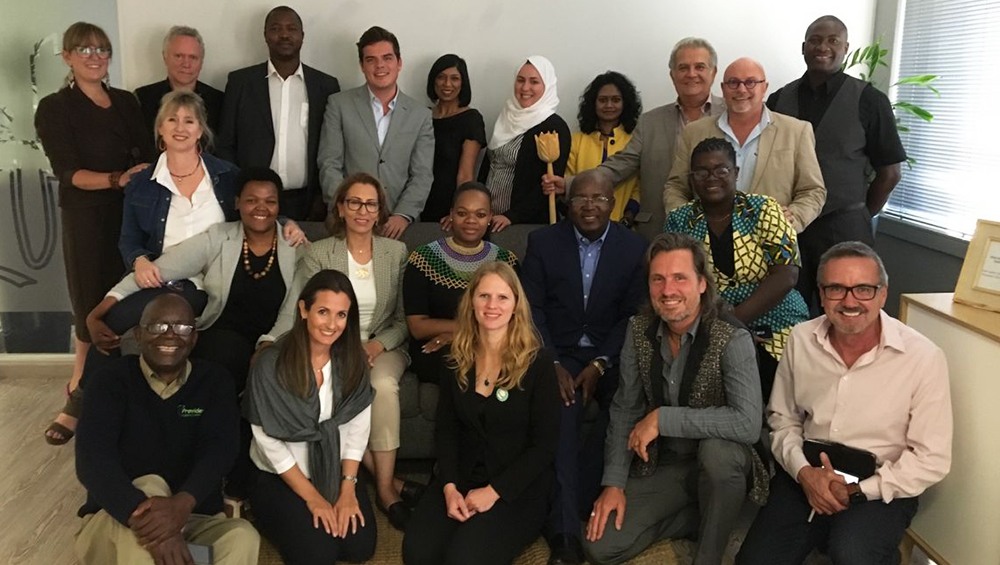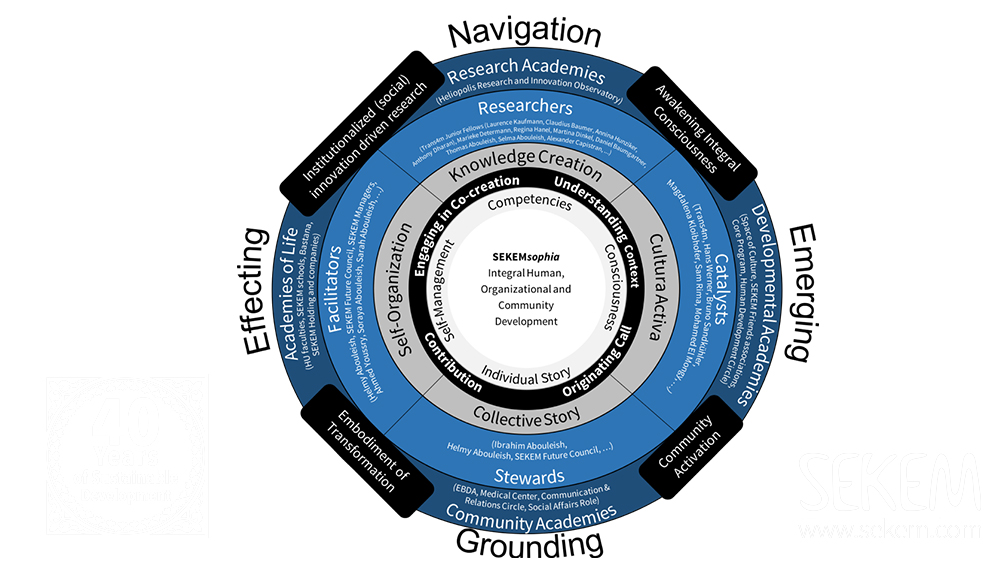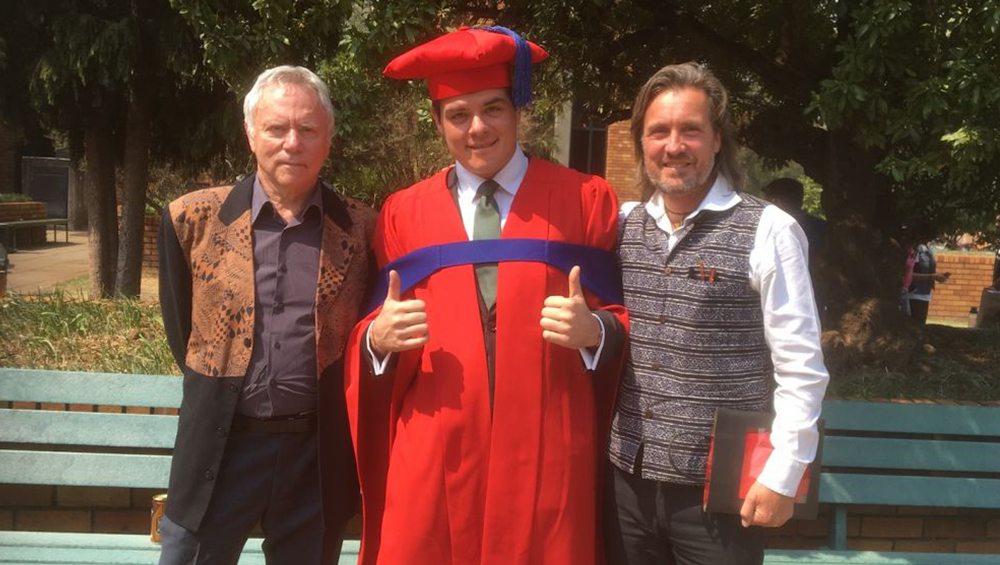“There are a lot of examples of expertise in the field of social innovation coming from Africa that are very inspiring to Europe. SEKEM is one of them,” says Maximilian Abouleish-Boes, SEKEM’s Chief Sustainability Officer. In both Africa and Europe, Maximilian Abouleish-Boes has recently attended two roundtable events: the Integral Africa Enterprise Roundtable in South Africa, and the Integral Education Roundtable in Slovenia. Not only representing SEKEM but Maximilian Abouleish-Boes took part in both events also as a PhD graduate from Trans4m, a longtime SEKEM partner.
“SEKEM and Trans4m cooperate for many years to co-create a role model for an Integral Enterprise and Integral Economy and to understand and spread the processes underlying social and societal Innovation,” Trans4m’s website.
Entitled “Co-creating Social Innovation for Sustainable Development in Egypt and the Middle East,” Maximilian Abouleish-Boes presents in his PhD thesis an integral human and organization development approach that is emerging at SEKEM. This approach is complementary to the SEKEM Sustainability Flower with its four dimensions: Economy, Ecology, Cultural Life, and Societal Life. “Collectively, the four dimensions resemble the structure of SEKEM as a living organism. But its function reflects the process-view which is also fourfolded,” SEKEM’s sustainability expert refers to the integral model, which was showcased by Prof. Alexander Schieffer and Prof. Ronnie Lessem, the co-founders of Trans4m. “It is the GENE-rhythm, a Grounding-Emerging-Navigating-Effecting rhythm that dynamically reflects the dimensions of integral human and organizational development towards the renewal of self, organizations and society. Something that we urgently need in our times and that one cannot separate.”

Sustainable Business-in-Community Success in and for Africa
“Africa has strong roots in culture and nature. At the same time, the continent has been living in a crisis mode on different levels for many years. This requires often a fundamental shift in tackling challenges and starting from scratch – from the desert as from where the SEKEM Founder started more than 40 years ago,” SEKEM’s social innovation catalyst elaborates.
In partnership with Trans4m, the African organization AFLEAD held the roundtable in its premises in Johannesburg, under the title “Building the Integral African Enterprise – Sustainable Business-in-Community Success in and for Africa”. 30 South African and international experts attended the event and got insights into African pioneers of Integral Enterprises. From Egypt, SEKEM was presented as a role-model next to MedLabs from Jordan and Providence Human Capital from Zimbabwe.

During the event, Maximilian Abouleish-Boes demonstrated SEKEM’s holistic approach and its evolving governance system as part of his PhD. “Fostering clarity and transparency among all SEKEM members when it comes to accountabilities and objectives is the purpose of our current joint organizational development efforts,” SEKEM’s Sustainability expert explains. “On a visualized governance structure that consists of concentric circles, roles are shown and hence projects can be discussed and managed by members of each circle more explicitly and thereby more efficiently.” This logic that inherently organizes work around purpose will also be used to align people working on the SEKEM Vision 2057 Goals.
Kindergarten as an emerging driver of Regional Integral Development
At the Kindergarten and Primary School of Spitalnic, the Integral Education Roundtable took place with the support of the Citizens’ Initiative for an Integral Green Slovenia. The School of Spitalnic is playing a key role in the Slovenian movement. “I find it quite symbolic to host the event there, especially with the kindergarten kids playing and running around. A real development always starts from this early stage,” Maximilian Abouleish-Boes states. Next to international thinkers and practitioners, Maximilian Abouleish-Boes was among the Trans4m fellows who were invited to participate in exploring the potential of holistic development in Slovenia. He presented SEKEM’s holistic approach with relevance to possibilities of realizing integral human development in Slovenia.

“By giving birth to the new but also respecting the old, we are already transitioning towards this emerging model that shall embrace the whole Egyptian society in the near future. Like with organic agriculture the challenge lies in working with nature not against it, which means to recognize the natural process of evolution that underlies living social systems.” Maximilian Abouleish-Boes
SEKEM has a complex development field of various entities that work across the four dimensions of sustainable development, “and now we are on the transition phase, which is not a very linear process,” as described by Maximilian Abouleish-Boes in his PhD thesis. He also shed light on the rhythm of how SEKEM’s elements work together and form social innovation that goes beyond the organization and shall renew the society. “Social innovation doesn’t start from research but from nature and community because out of that comes to the challenges facing the society, and research is needed to tackle those challenges,” says the sustainability expert.
For more than 40 years, SEKEM has been the nucleus of renewing the society, and cultural development has always been its essence. By Biodynamic agriculture, the SEKEM farmers are already addressing critical issues like food security and climate change. This mission of societal transformation in Egypt is already a target that is set among others in SEKEM Vision 2057. “However, problems cannot be solved by the same logic all the time. We need an agile and resilient governance structure of SEKEM as a complex living ecosystem. The challenge lies in adapting human and organizational development to the local context and consciousness of people,” Maximilian Abouleish-Boes concludes.
Pictures: ©Trans4m
Join the SEKEMSophia Symposium in November
SEKEMsophia – The Phoenix Out of the Ashes
SEKEMsophia – Circles Instead of Trees

